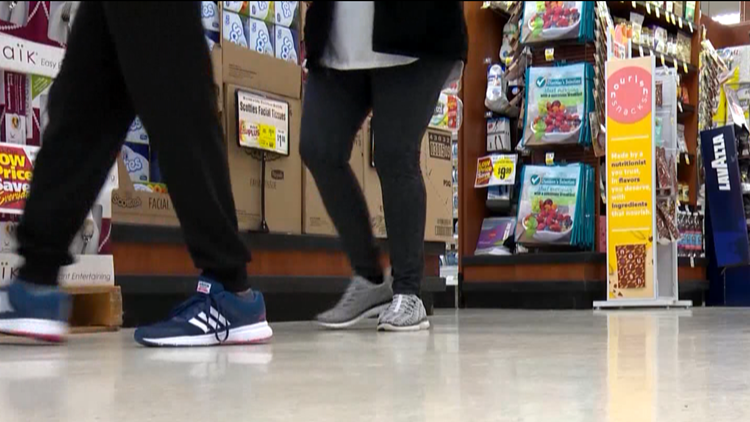WASHINGTON — Maryland lawmakers sent a letter to the U.S. Department of Agriculture Tuesday urging the department to rescind a proposed rule that would limit Americans’ access to food stamps.
In a letter sent to USDA Secretary Sonny Perdue, Maryland lawmakers said under that under the proposed rule, 50,000 Marylanders could be in jeopardy of losing their food stamps.
According to the USDA, the rule would close a loophole that allows states to make participants receiving Temporary Assistance for Needy Families (TANF) benefits to automatically be eligible for USDA’s Supplemental Nutrition Assistance Program (SNAP.)
There are 3.1 million people who are eligible for food stamps because of this link -- about 8% of all people receiving food stamps, CBS News reported.
“For too long, this loophole has been used to effectively bypass important eligibility guidelines. Too often, states have misused this flexibility without restraint,U.S. Secretary of Agriculture Sonny Perdue said.
“The American people expect their government to be fair, efficient, and to have integrity – just as they do in their own homes, businesses, and communities. That is why we are changing the rules, preventing abuse of a critical safety net system, so those who need food assistance the most are the only ones who receive it." Perdue said.
The program would limit Americans’ access to food stamps by eliminating automatic enrollment in the program for families who receive welfare benefits.
“Right now states like Maryland have the flexibility to design their own food and nutrition programs,” U.S. Senator Charis Van Hollen said. “Maryland has essentially designed the food and nutrition program to help a range of needy families and the Trump Administration would take away the flexibility Maryland has exercised to try and help more needy Marylanders.”
The USDA proposed the rule in July, but the public comment period ends on September 26.
The USDA said the proposal would give them the ability to save billions of dollars, but Maryland lawmakers wrote to Perdue that the proposal would increase government administrative costs by $2.3 billion.
When the government shut down, Alisa Molyneaux said the food pantry she works at was inundated with more people needing food.
“This would have a tremendous impact for families because they’ll have to decide whether to buy groceries or pay rent, and that’s a decision that no one should have to make on a daily basis,” Molyneaux said.
Van Hollen said once the public comment periods, the USDA will look at the comments to see if this rule will be approved.



